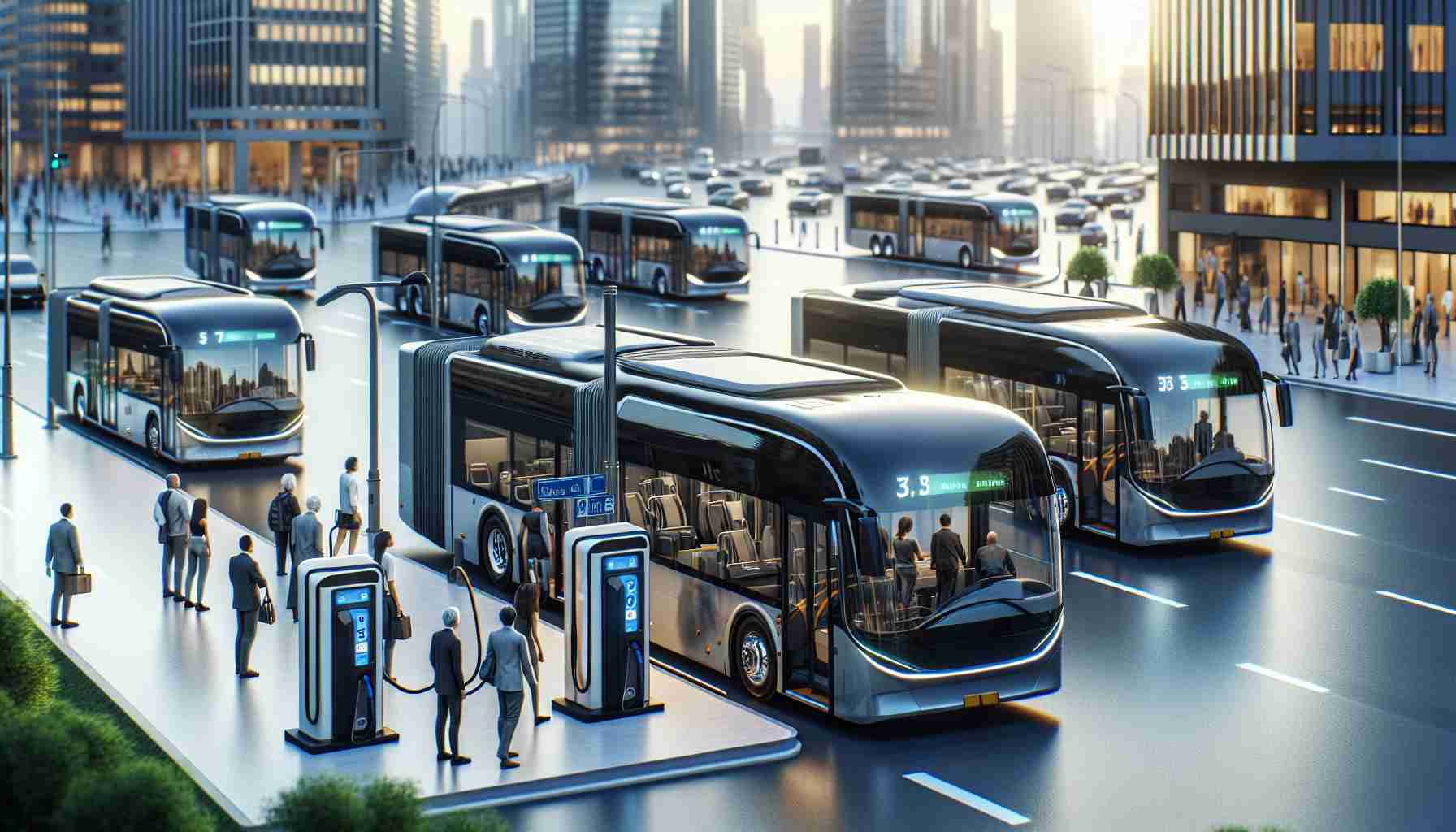
Revolutionizing Urban Transport with Fuel Cell Electric Buses
The Fuel Cell Electric Bus Market is set to undergo significant changes between 2024 and 2031, according to the latest analysis from Coherent Market Insights. This report offers a comprehensive breakdown of the industry’s current landscape, revealing key trends and future opportunities.
Market Dynamics: The report tracks the growth of the fuel cell electric bus sector, providing insights into past performance and forecasting future developments. The increasing push for zero-emission public transport is driving cities to adopt fuel cell technologies. These buses not only have longer ranges but also boast faster refueling capabilities, making them ideal for demanding transport schedules.
Technological Advances: Ongoing research is aimed at enhancing fuel cell efficiency, longevity, and affordability. A critical factor for success in this market is the establishment of hydrogen refueling infrastructure, which is essential for widespread vehicle deployment.
Government Initiatives: Supportive policies and incentives from governments around the world are fostering the growth of this market. Key players such as Ballard Power Systems, Hyundai, and Toyota are at the forefront of these innovations.
Regional Insights: The report categorically analyzes various geographical markets, identifying lucrative opportunities in regions like North America, Europe, and Asia-Pacific, thus providing a roadmap for investors and stakeholders looking to navigate this evolving industry.
Fuel Cell Electric Buses: Transforming the Future of Urban Mobility
The Fuel Cell Electric Bus Market is on the brink of transformation between 2024 and 2031, driven by technological advancements and an increasing commitment to sustainability. As urban centers strive for cleaner transportation solutions, the future looks promising for fuel cell technology in public transit.
Market Dynamics: Recent analyses indicate a significant uptick in fuel cell electric bus adoption, primarily due to the global shift towards zero-emission public transportation. These buses carry substantial benefits, including longer ranges compared to traditional electric buses and rapid refueling times—often comparable to conventional diesel buses—making them suitable for high-demand transit routes.
Technological Innovations: Investments in research and development are yielding breakthroughs in fuel cell technology. New materials and designs are being explored to enhance the efficiency and longevity of fuel cells while reducing costs. Additionally, the expansion of hydrogen refueling infrastructure is critical. Partnerships between governments and companies are emerging to support the necessary development of refueling stations, which is crucial for the mass deployment of fuel cell buses.
Government Support: Government backing is instrumental in the fuel cell bus market’s growth. Incentives, grants, and subsidies are enabling transit authorities to invest in fuel cell technology. Major players like Ballard Power Systems, Hyundai, and Toyota are leading the charge, collaborating with public entities to promote and implement hydrogen-fueled buses.
Regional Opportunities: The market’s growth varies by region, with North America, Europe, and Asia-Pacific emerging as hotspots for investment and development. Local policies aimed at reducing carbon emissions are encouraging cities to adopt fuel cell buses, recognizing their potential to significantly lower urban air pollution levels.
FAQs: Fuel Cell Electric Buses
1. What are fuel cell electric buses?
Fuel cell electric buses use hydrogen fuel cells to generate electricity, propelling electric motors that drive the vehicle. They emit only water vapor, making them a zero-emission alternative to traditional buses.
2. How long does it take to refuel a fuel cell bus?
Refueling a fuel cell bus typically takes about 15 to 20 minutes, significantly less time than charging a battery-electric bus, which can take several hours.
3. Are fuel cell electric buses more expensive than diesel buses?
While the initial cost of fuel cell buses is higher due to technology and infrastructure needs, their total cost of ownership can be lower over time, thanks to reduced fuel and maintenance costs.
4. What challenges does the fuel cell bus market face?
Key challenges include the high initial investment for buses and refueling infrastructure, as well as the current limitations in hydrogen production and supply.
Trends and Predictions: Looking ahead, the growth of the fuel cell electric bus market is anticipated to accelerate due to increasing environmental regulations, advancements in hydrogen production technology, and broader adoption of renewable energy sources. As cities prioritize sustainability, fuel cell buses are likely to play a crucial role in urban mobility.
Conclusion: The fuel cell electric bus market presents various opportunities for stakeholders across the transportation sector. With technological advancements and a favorable regulatory landscape, the transition towards hydrogen-powered public transport is not only a trend but an essential move towards a sustainable future.
For further information on the ongoing developments in clean transportation solutions, you can explore more about this topic at Coherent Market Insights.



